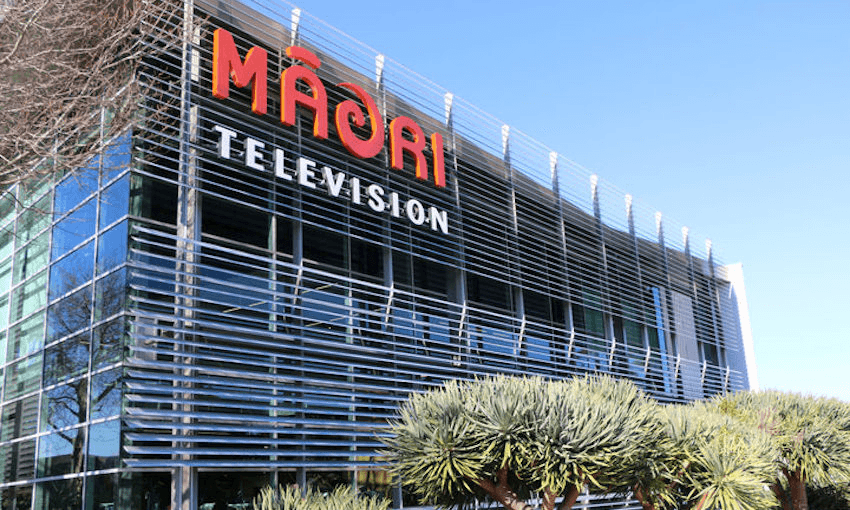As the Minister for Māori development faces the music for a poorly-received Māori media sector review, new and contradictory details are emerging.
A government review of the Māori media sector released last week that recommended Māori news be centralised into a single service at Māori Television was received poorly by many in the sector.
It was assumed the proposal meant that news and current affairs shows like Te Karere, The Hui and Marae would be disestablished in favour of Māori Television’s daily news service Te Ao. But following a furious response from senior executives in Māori media, Minister for Māori Development Nanaia Mahuta has told The Spinoff that the option “doesn’t impact current affairs shows such as Marae and the Hui”.
The rationale given by the minster is that they are funded by “other mechanisms”. However, Pango Productions, which produces the weekly current affairs show Marae, confirmed that the show receives funding from Te Māngai Pāho (the Crown funding entity overseen by Mahuta) year on year. The Hui also receives half its funding from Te Māngai Pāho.
Mahuta said the purpose of the “clearing house” – which the central service is being described as – is to “create opportunities for regional, local and international stories to be deposited… and picked up by the Māori media and public media sector”.
“There is a wealth of activity in Māori communities and often those news stories are accessed via iwi radio rather than a nationwide platform.”
The Hui producer Annabelle Lee-Mather told The Spinoff that in a recent Zoom meeting with the minister, she asked for clarification of the term “clearing house” as it wasn’t one she’d heard used in media. She said Mahuta and other advisors seemed unclear on whether the centralised service would be a news distribution service or an aggregate service that was user-driven. “It’s just bad bureaucracy, I don’t think they really know what they’re doing.”
Quoting a recent tweet she’d seen, Lee-Mather said that all the confusing documents and ensuing “back-pedalling” had done was to make a case for “disestablishing TPK [the Ministry of Māori Development, Te Puni Kōkiri]”.
Criticism of the review’s proposals so far have included questioning whether Māori Television has the multimedia capabilities to serve a digital audience given that its core competency is linear television, as well as its ability to also become a “Centre for Media Excellence” and provide industry training. Mahuta defended her choice of Māori Television as the centre for all operations over using a tender process.
“I am the minister responsible for MTS [Māori Television Service], it is a first option and a natural starting point given the focus on the Māori media sector,” Mahuta said. “A clearing house for Māori News is an option. It is conceptual and will require more definition with the sector, which is the purpose of current engagement.”
In light of the minister’s stay-of-execution of The Hui and Marae, and with Te Ao being produced in-house by Māori Television, it seems the only production left in the proposal’s crosshairs is TVNZ’s Te Karere. When asked if Te Karere would have to leave TVNZ and go to Māori Television or be disbanded, the minister answered: “We are encouraging news services to consider the most effective delivery of news for a linear and digital platform that may mean a different and integrated service and I expect the submission process will outline the views of existing providers to be considered.”
Commissioner for TVNZ’s Māori and Pacific programmes, Nevak Rogers, told The Spinoff they’re “heartened that the Minister has signalled programmes such as Marae and The Hui are “safe” because they receive contestable funding. However, Te Karere also applies for annual funding from Te Māngai Pāho (TVNZ covers one quarter of the annual cost), so question why that rule wouldn’t also apply to Te Karere.”
She said there’s still a considerable amount of confusion among the sector. “Part of TVNZ’s submission is to get a clearer understanding of how the proposed paper would impact on Māori news; Māori current affairs and Māori content – eg documentaries.”
This story has been updated to include comment from TVNZ





